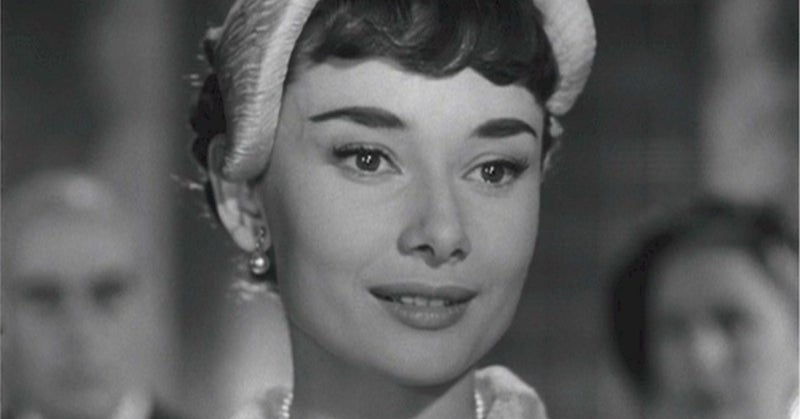
When thinking about the great directors of the Hollywood Golden age, one name is often overlooked: William Wyler. The likes of Hitchcock, Ford, Wilder and Welles are still revered to this day for their innovation and genius, but Wyler’s name is rarely remembered as keenly. He lacked an obvious style or signature genre. Instead, his filmography covers a wide range of films, almost always immaculately crafted and with really excellent performances. He dominated the Academy Awards like few others, holding records in numerous categories for both nominations and wins, and even garnered critical acclaim outside of the States too. Most of the major stars he worked with returned for a second or third film, as he gained a reputation for getting the absolute best out of everyone. Here are the ten best films he directed.
10. Friendly Persuasion (1956)
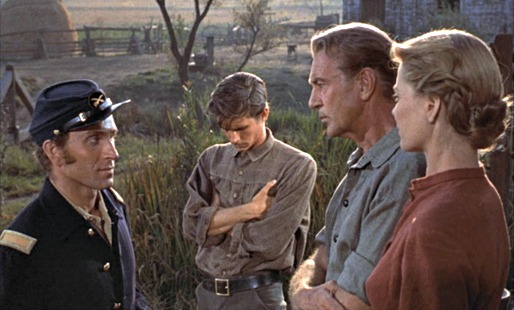
Among Wyler’s many accolades, perhaps none is as prestigious as the Palme d’Or. He was awarded the honour in 1957 for Friendly Persuasion, over the likes of Nights of Cabiria and The Seventh Seal. It’s a quaint family drama, showing the lives of some rural Quakers and the pacifist stance they take during the American Civil War. Starring Gary Cooper, Dorothy McGuire and a pre-Psycho Anthony Perkins, it has all the star-power and top class acting that had become synonymous with Wyler films by the mid-50s. Each of them gives a surprisingly sensitive turn, making the simple lives of this family incredibly engaging.
Though lacking the style of some of the director’s more famous work, there’s an undeniable charm to proceedings that’s hard to dislike. Subtly subverting many of the typical conventions seen in war films and westerns, Wyler manages to make this low-key story incredibly compelling.
Large stretches of the film are spent just watching the Birdwell family interact as they go about their daily lives, attempting to uphold their Quaker beliefs in a world that isn’t quite built for them. It’s as effective as it is because you genuinely believe in the connections between the characters.
Their views are presented frankly, completely without judgement. Wyler isn’t concerned with picking a side in the pro/anti-war debate. Instead he shows this small community as it is, and leaves you to make your mind up about the choices they make. It’s about as down-to-earth and unglamorous as Golden Age Hollywood gets, which is especially surprising given it was Wyler’s first film in colour. He would go on to produce big budget technicolour spectacles, but while his first foray into the medium is lacking in a certain shine, it really suits the subject matter. Perhaps that’s what charmed the Cannes Jury. It’s a rare feat for a mainstream Hollywood director to win plaudits across the Atlantic, so Wyler deserves credit as one of the only studio era directors to win Europe’s top cinephile award.
9. Detective Story (1951)
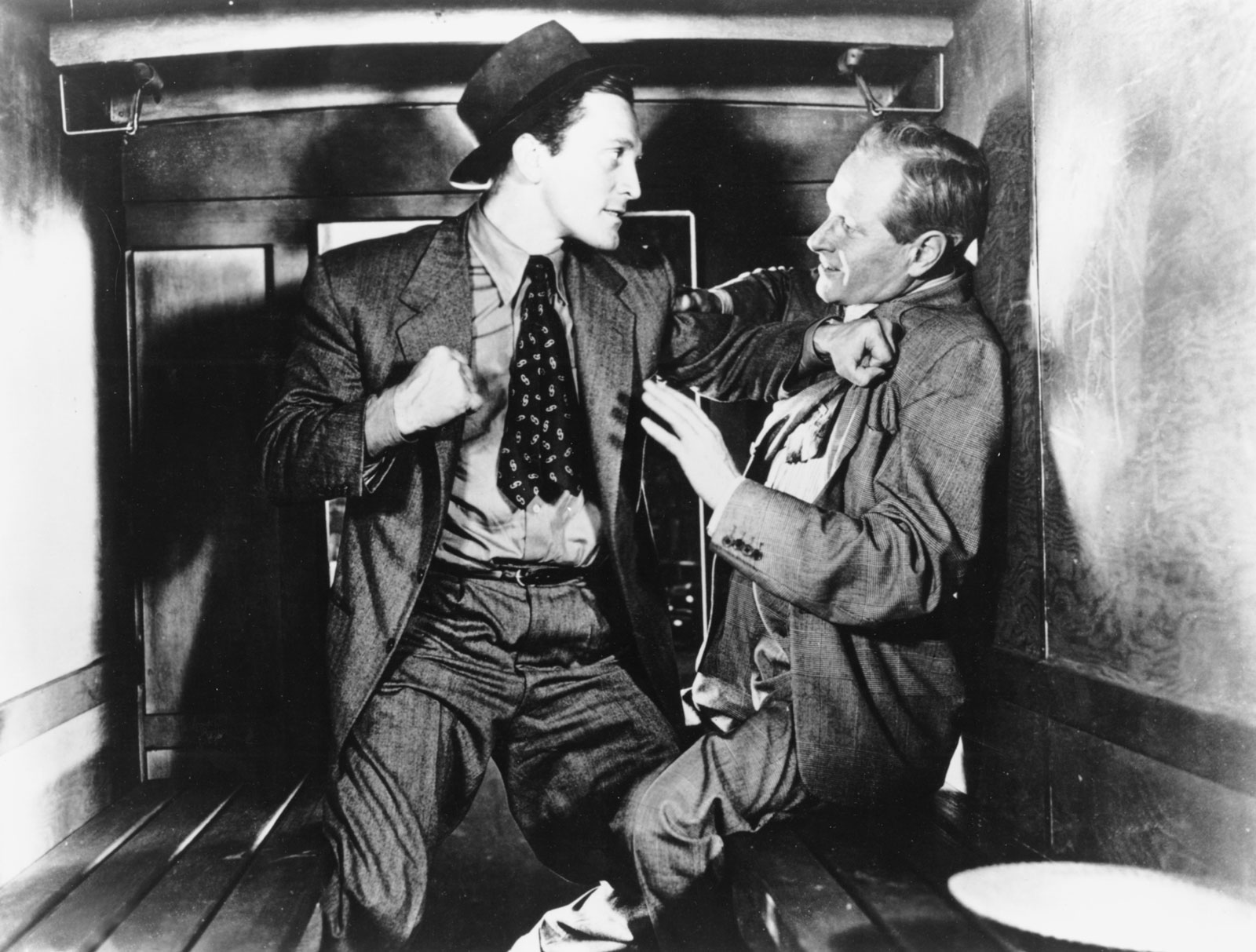
This fiery police drama, adapted from a 1949 play of the same name, cuts to the heart of puritanical prejudices of the time. It’s essentially a day in the life of one police precinct, where a self-righteous detective sees his personal code, and eventually his life, spiral out of control. Kirk Douglas gives one of his best performances, alongside Eleanor Parker and a pre-blacklisted Lee Grant. Both actresses received Oscar nominations, while Grant also won Best Actress at Cannes for her small role. Rather cruelly there was no such recognition for Douglas, despite electrifying monologues and tirades, at times exploding with an almost manic glee but equally able to show inner turmoil as his ideals are challenged.
It’s an energetic story, building up to an emotionally bombastic finale. The near single location is perfect for a director like Wyler, allowing him to play effortlessly with depth and focus as he flicks between the various storylines, and making everything unfold very naturally. He pulls you into the drama, forcing us to see the impact of the detective’s actions as the seemingly straightforward drama turns into something wholly more tragic. It’s even more prescient when viewed through a modern lens. The increased awareness and scrutiny of police brutality in the decades since release have only increased the murkiness of Douglas’ detective and his merciless philosophy. As the film goes, the façade he wears is pulled away, eventually revealing a contemptible man, hardly better than the criminals he demeans and looks down on. It’s a caustic examination of police attitudes and their abuse of authority, years before it was really in the eye of the mainstream.
8. How to Steal a Million (1966)
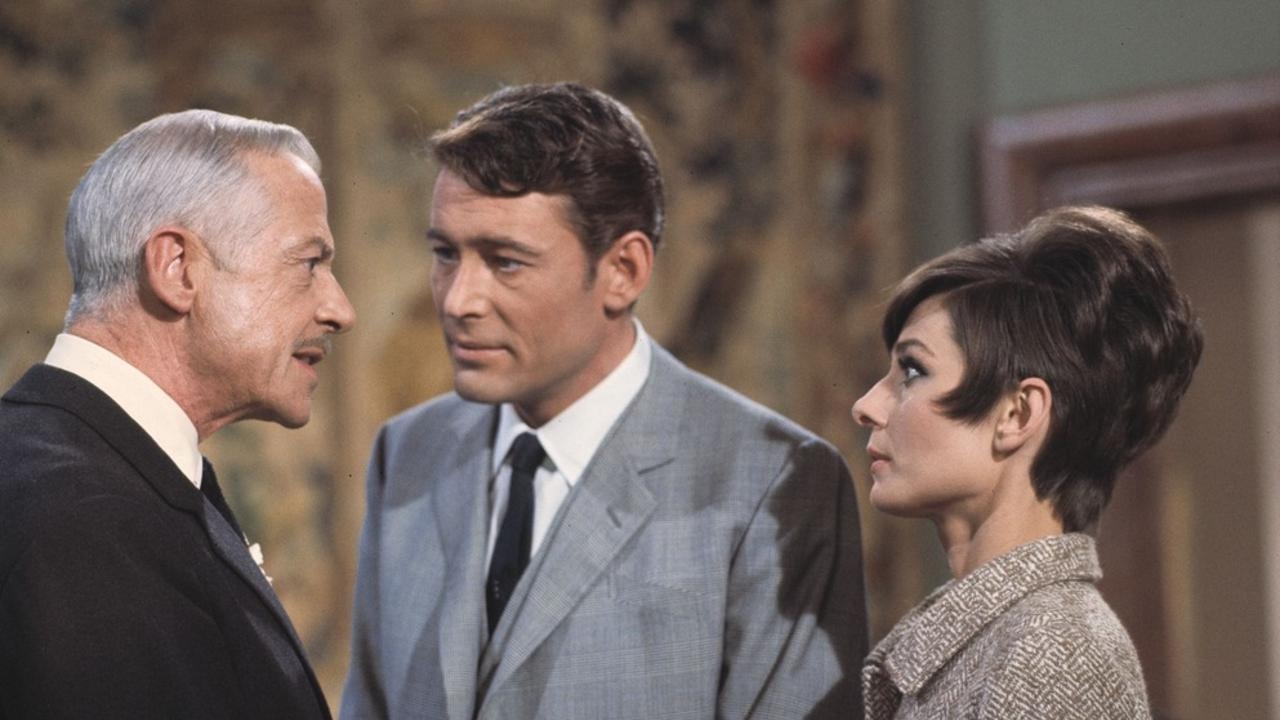
The 60s was the decade where Wyler shifted a bit in the films he was producing, as he began to take on new genres (thrillers with The Collector, musicals with Funny Girl, even revisiting his own ’36 drama These Three with The Children Hour, a lesbian drama heavily scrutinised by the censors). It was with How to Steal a Million that he returned to somewhat familiar, reliable ground – it’s a rom-com, but also a crime caper, and of all his 1960s films, it’s here that the director struck the best balance between genre and straight-up entertainment. This crime-comedy was Wyler’s third and final collaboration with the legendary Audrey Hepburn, pairing the leading screen star with Peter O’Toole for a Paris-based heist with a touch of romance. It’s perhaps the outright funniest film Wyler ever made, leaning much more into comedic circumstances and prickly ‘will they-won’t they’ romantic tensions than most of his other work.
Coming at the back end of his filmography, it shows he still had the knack for getting utterly charming performances out of his stars. Hepburn and O’Toole are a wonderful screen pairing, perfectly embodying the high-class atmosphere of the sophisticated world of Parisian art. Wyler sets up the caper so effectively, orchestrating and executing a low-key but totally ingenious heist with creativity, excitement and humour. He pokes fun at the crazy obsessions of the wealthy and their total disconnect from any normal reality, without letting the romance or driving plot suffer. Hugh Griffiths and Eli Wallach provide amusing supporting roles (Griffiths is much better in this than Ben-Hur, the Wyler film that he actually won an Oscar for). The whole thing has a really lighthearted air, with two luminous stars and smart direction that cement its place alongside all the best capers.
7. The Big Country (1958)
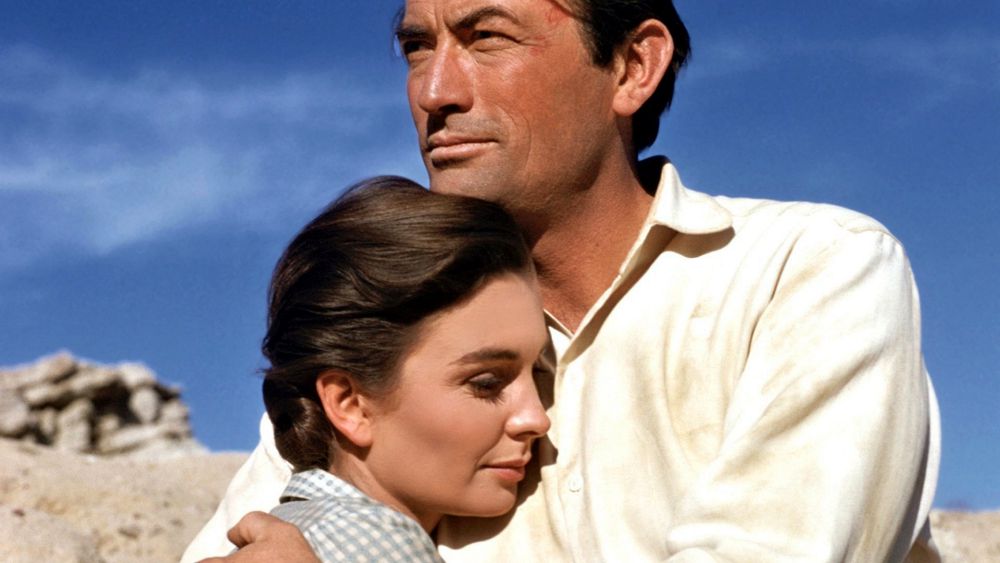
Wyler was an unashamedly political filmmaker. His left-wing leanings are woven throughout a lot of his films, and none more so than his 1958 Western The Big Country. Perhaps most famous for its rousing score, The Big Country is Wyler’s attempt to understand the Cold War, and the pointless, unnecessary tensions and conflicts that it enabled. (Rather ironically, President Eisenhower was a big fan, and screened it multiple times at The White House). After his downplayed imagining of the American frontier in Friendly Persuasion, this was a return to a more typically Hollywood style. The massive sets and wide expanses emphasise the title, while the story, about warring land barons, is rich with social commentary about wealth, masculinity and defiance in the face of adversity.
As had become the norm by then, the cast is full of talent, with stars like Gregory Peck and Jean Simmons, Charlton Heston, Carroll Baker and Burl Ives bringing these characters to life. It’s a meditation on the American way of life and the mythology of the Western, inflected by Wyler’s European perspective on themes of pride, conflict and nationalism. He questions those who rush headfirst into dangerous situations they don’t fully understand, assured that their way and their way alone is the morally right one. In many ways, it’s an early example of the revisionist Western, approaching the genre and character archetypes in a way that few other films did during the 50s, but never allowing that to diminish the scale of it all.
6. Jezebel (1938)
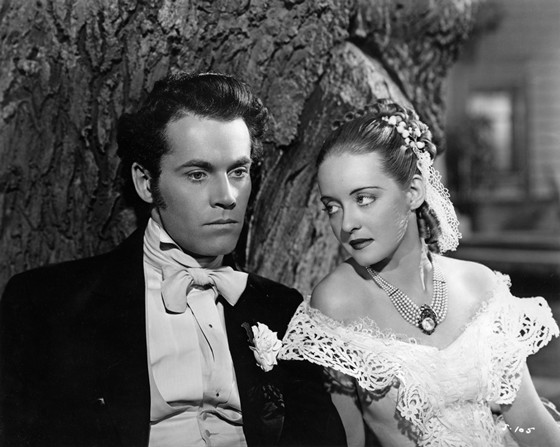
When thinking of depictions of the Civil War Era South in 30s Hollywood, Gone With the Wind is the obvious frontrunner. Just one year before however, Wyler directed a very similar film for Samuel Goldwyn; one that also won its lead actress Bette Davis an Oscar (her second of the decade). This was the first time one of Wyler’s stars had truly shone – Davis is a force of nature, headstrong and independent, demanding attention every time she is on screen. Miss Julie is every bit as conniving and petulant as Scarlett O’Hara, bringing out the worst in everybody around her as she rebels against the rules that govern her archaic society.
Davis always credited Wyler with helping her realise her full potential as a screen actress, and the results of his perfectionism and relentless pushing are clear to see on screen. It’s one of the finest performances in the career of a true screen icon, and Wyler knows how to make it as effective as possible. The two would go on to make two more films together in the 40s — The Letter and The Little Foxes — for which Davis would also receive Oscar nominations, but neither are quite as scintillating as their first.
More than just a performance vehicle though, Jezebel is a fascinating snapshot of its era. On the one hand, Wyler’s craft is just incredible. On the other, it’s aged terribly when it comes to its depictions of African Americans, with some of the most egregious stereotypes you can imagine. For a film about the South in the 1850s, racial politics and the topic of slavery are impossible to avoid. In an era where Hollywood had little respect for non-white characters, it was always going to prove distasteful, although the film doesn’t just rely on lazy comedy like most others from that time.
Wyler’s frame is always aware of the presence of black characters, showing their integral role within this world and the callous treatment they receive from their white masters. He succeeds in condemning this failing society, and when it isn’t focusing on the stereotypes it’s rich with nuance, interpretations, and really impressive filmmaking. There’s a cynical tone to how the Southerners are presented, as members of a pathetic society edging closer to defeat. With none of the romanticism that’s so jarring about Gone With the Wind, Jezebel stands the test of time somewhat better than most similar films from its time.